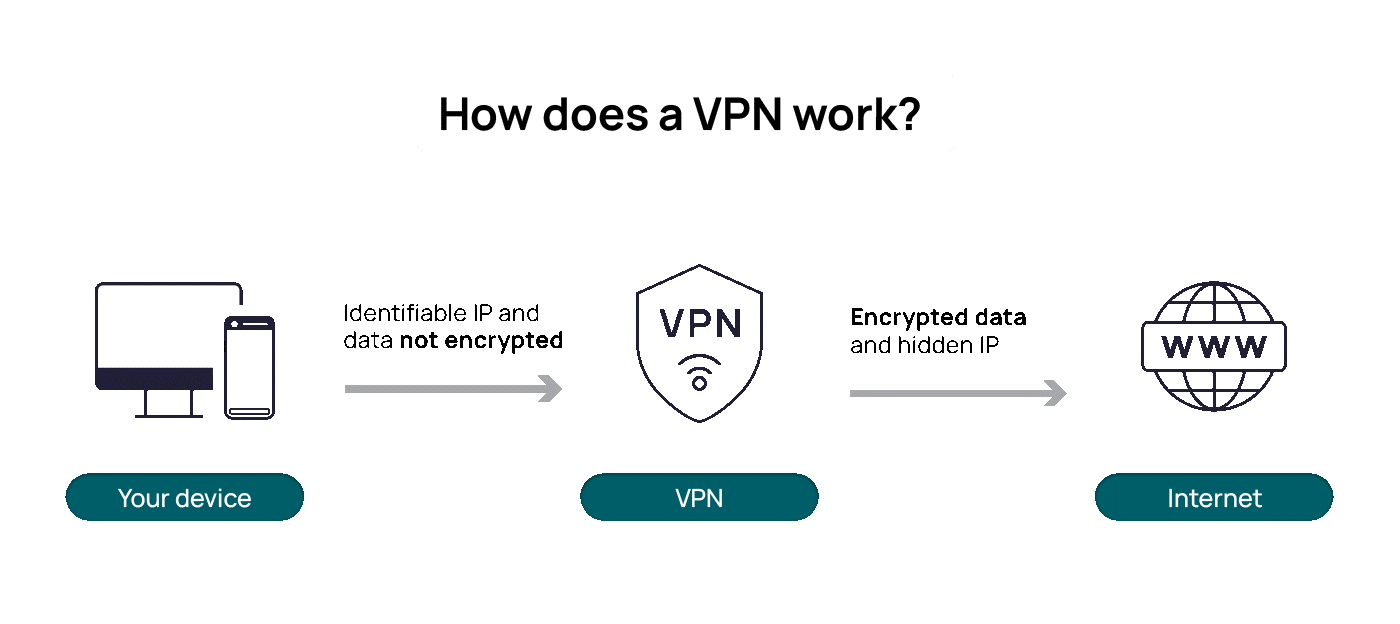The digital age has revolutionized the way businesses operate, enabling seamless communication, data sharing, and global collaboration. However, this increased connectivity has also exposed businesses to significant cybersecurity threats. One of the most valuable assets at risk is intellectual property (IP). In response, Virtual Private Networks (VPNs) have emerged as a vital tool in safeguarding business IP. This article explores the critical role of VPNs in protecting sensitive data, particularly in today’s interconnected world.
What is a VPN?
VPN means "Virtual Private Network." It is a secure technology that creates an encrypted connection between a user’s device and the internet. This ensures that data transmitted online remains private and inaccessible to unauthorized parties. VPNs act as a shield. It prevents cybercriminals and other malicious entities from intercepting sensitive information, such as trade secrets, client data, and proprietary technologies.
Unlike traditional internet connections, VPNs mask a user’s IP address, routing their internet activity through a secure server. This not only ensures privacy but also enhances online security. According to a 2023 report by Cybersecurity Ventures, over 70% of businesses now incorporate VPNs as part of their cybersecurity strategy.
Why Protecting Business IP is Crucial
Intellectual property is the backbone of innovation and competitive advantage. For businesses, IP encompasses:
- Patents and trademarks
- Trade secrets
- Product designs
- Software and algorithms
The theft or compromise of this data can lead to significant financial losses. The World Intellectual Property Organization (WIPO) estimates that IP theft costs businesses globally over $600 billion annually. As cyber threats continue to evolve, businesses must prioritize securing their intellectual assets, and VPNs play a crucial role in this endeavor.
How VPNs Protect Business IP

VPNs use various methods to protect the IP addresses of businesses. Here's how VPN protection works:
1. Encryption of Data
A VPN encrypts all data transmitted between devices and servers, making it nearly impossible for hackers to decipher. This encryption ensures that sensitive information, including proprietary designs and client details, remains secure, even if intercepted.
2. Securing Remote Work
The rise of remote work has increased the attack surface for cybercriminals. Employees accessing company networks from unsecured Wi-Fi connections, such as those in cafes or airports, pose significant risks. VPNs mitigate these threats by creating secure tunnels for data transmission. According to a survey by Global Workplace Analytics, 25% of remote workers experienced cybersecurity incidents before implementing VPNs.
3. Protecting Communication Channels
Businesses rely heavily on communication tools like email, video conferencing, and instant messaging. These platforms are potential targets for eavesdropping and data breaches. A VPN secures these channels, ensuring confidential discussions about product launches or partnerships remain private.
4. Masking IP Addresses
Cybercriminals often target businesses by tracking their IP addresses. By masking the IP address, a VPN adds an additional layer of anonymity. This is particularly beneficial for businesses involved in research and development, where competitors may attempt to monitor online activities.
5. Preventing Geo-Restricted Espionage
Certain countries impose strict internet monitoring and censorship. Businesses operating in these regions risk exposing sensitive data to government surveillance or cyber espionage. VPNs bypass these restrictions, ensuring secure access to global resources.
The Limitations of VPNs
While VPNs are essential for cybersecurity, they are not a standalone solution. Businesses must adopt a multi-layered approach that includes firewalls, antivirus software, and employee training. Additionally, not all VPN providers offer the same level of security. Businesses must carefully evaluate providers, considering factors like encryption protocols, server locations, and data logging policies.
Future of VPN Technology in Business
As cyber threats evolve, so too will VPN technology. Innovations like quantum-resistant encryption and AI-powered VPNs are on the horizon, promising even greater security for businesses. The global VPN market is projected to grow from $44.6 billion in 2023 to $93.1 billion by 2028 (MarketsandMarkets), underscoring its increasing importance in the digital landscape.
Furthermore, the integration of VPNs with other technologies, such as Zero Trust Architecture (ZTA), will offer businesses enhanced protection. ZTA operates on the principle of "never trust, always verify," ensuring that even trusted users undergo rigorous authentication before accessing sensitive data.
Conclusion
In today’s digital age, protecting intellectual property is more critical than ever. VPNs offer businesses a reliable and effective means of securing their sensitive information, from R&D efforts to client communications. While no technology can guarantee absolute security, the strategic use of VPNs significantly reduces the risk of data breaches and IP theft. As cyber threats continue to evolve, businesses must remain proactive, leveraging advanced VPN solutions to stay ahead of potential vulnerabilities.
The Role of VPNs in Protecting Business IP in the Digital Age